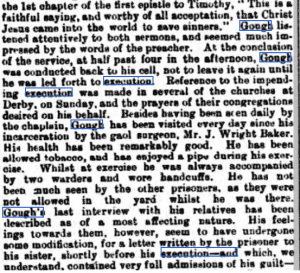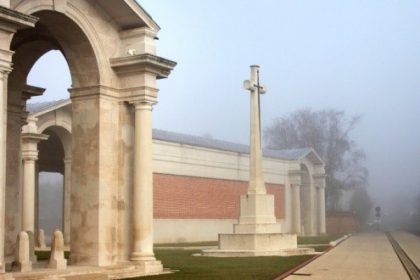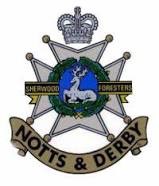EXECUTION OF GOUGH.
The execution of Alfred Gough, aged 34, hawker, for the murder of Eleanor Windle, a little girl at Brimington, on the 20th of August, took place at eight
o’clock Monday morning last. Full details of the murder have quite recently appeared in our columns, and is not necessary to occupy valuable space, or weary the patience our readers, by their recapitulation. From the first, it was not anticipated that any attempt would made procure the reprieve of Gough. The Learned Judge (Mr. Justice Mathew) who tried the case held out no hope of mercy whatever, and exhorted the unhappy man to seek for mercy where alone it could be found.
“You have,” his Lordship, “committed one great sin. not commit another—do not harden your heart.” The unhappy man seems to have taken this timely advice to heart. Whilst prison he displayed—so the chaplain assures us —the best possible spirit. His conduct since his apprehension has been most exemplary. He has behaved himself with the utmost propriety, and has shown the deepest penitence for the crime for which he had suffer. He has taken every advantage of the ministrations of the chaplain, and during the last two days of his life has devoted himself earnestly, both the services in the chapel and in the solitude of his cell to religious exercises. For several days the the gaol chapel included a prayer offered by the whole of the prisoners for the condemned man. this having been done at his own request. As the chapel is to small for the accommodation of the whole of the inmates of the gaol, two services were held daily, the form of prayer used being the ordinary Morning Service of the Church of England. The convict has been always attended by two warders, and a pew was specially allotted for their accommodation.
On Sunday the services were of an unusually solemn character. Gough was present at both of them, and joined in the devotions with intense
interest. Special psalms and hymns were used, which had been chosen Gough himself, among those being the well known penitential psalm (the 51st) Miserere mei Deus. The sermons preached by the chaplain, the Rev. Henry Moore, had special reference to the melancholy event which was to take place on the following morning. At the morning service the rev. gentleman took his text from the passage in the lesson for the day, “Then shall the dust return to the earth it was, and the spirit shall return unto God who gave it,” Ecelesiastee xii., 7. He referred to the solemn lesson to be drawn from the chapter, and remarked upon its singular appropriateness as the lesson for the day, dealing it did with the necessity of preparing for the inevitable end of all that is mortal in man. In the course of an eloquent sermon urged upon his hearers the truth conveyed in the last verse of the lesson. For God shall bring every work into judgment, with every secret thing, whether it good or whether it be evil.” In the afternoon the rev. gentleman took his text the 15th of the Ist chapter the first epistle to Timothy.
This is faithful saying, and worthy of all acceptation, that Christ Jesus came into the world to save sinners.” Gough listened attentively to both
sermons, and seemed much impressed the words of the preacher.
At the conclusion the service, half past four in the afternoon, Gough was conducted back his cell, not leave it again until he was led forth to execution. Reference to the impending execution made in several of the churches at Derby on Sunday, and the prayers their congregations desired on his behalf. Besides having been seen daily the chaplain, Gough has been visited every day since his incarceration by the gaol surgeon, Mr. J. Wright Baker. His health has been remarkably good. He has been allowed tobacco, and has enjoyed a pipe during his exercise. Whilst exercise was always accompanied by two warders and wore handcuffs.
He has not been much seen by the other prisoners, as they were not allowed in the yard whilst he was there. Gough’s last interview with his relatives has been described as of a most affecting nature. His feelings towards them, however, seem to have undergone some
modification, for letter written by the to his sister, shortly before his execution and which we understand, contained very full admissions of his guilt was, by Gough’s request, impounded by the Governor, instead of being sent its
destination, the unhappy man being very vexed at the discovery that previous letters written by him to his relatives had been published in the newspapers.
To the chaplain (the Rev. Henry Moore) the prisoner was more communicative, and on the morning his execution handed the reverend gentleman the following letter, containing confession of his guilt, and apparently sincere expression of sorrow for the fearful crime be had committed:-
H.M.’s Prison, Derby, Nov. 21. 1881
To the Minister, Sir, I now take my pen to write a few lines to thank you for being as good and kind to me, a poor unfortunate prisoner. that has committ
ed such a fearful wicked crime. I hope the Lord will forgive me. I am sorry for it. If I had a hundred lives I would give them call that poor, sweet, innocent little girl back to life, but it cannot be. But the Lord has taken her soul to heaven to be with the angels of glory in that bright and happy land above, where there is no sorrow, but all is the bliss and happiness, which I hope my Lord and Saviour will lift me up and wash all my wicked sins away, and make me as white as snow. Amen. Good bye and God bless you, sir, for being so kind to me. a sinner. I shalI soon be cold and in the dust, but hope to be forgiven and rise in glory the last day. So no more.
Yours truly,
Alfred Gough
May God bless you and the doctor for his kindness, and likewise the governor.
Gough did not retire to rest on Sunday night, but occupied himself in rending, writing, and praying, until half, past three o’clock. At six o’clock he was called by the prison officials, partook of a sparing breakfast, and prayed almost unceasingly till he was led forth to execution. Just before leaving the cell, Gough said he was truly sorry for what he had done, that he had not lived as a Christian man should do, but wished to die like a Christian.
Shortly before eight o’clock, the unhappy man was dexterously pinioned by Marwood, the hangman, to whom, as usual, had been entrusted the task of carrying out the last dread sentence of the law. The last manual act performed Gough was the consumption of a small flask of brandy, considerately handed him by warder, and then his pinioning completed, the prisoner was led to the place of execution closely adjacent. It was a mournful procession which wended its way through the prison courts on that cold, wet, November morning. It was comprised of prison and county officials, with their black staves office, an attendant posse of warders, and the representatives of the local press. Amongst the official’s present were Farquharson (Governor of the Gaol). Mr. B Scott (Under-Sheriff), Mr. W. B Delacombe (Sheriff’s Officer), and the Rev. Henry Moore (Chaplain). The prison bell solemnly tolled forth the death knell of the unhappy man, who walked with awe-stricken mien to the scaffold. lifting his eyes heavenwards as if in silent prayer, whilst the Chaplain impressively read the opening Sentences of the Burial Service for the Dead. Arrived at the scaffold, Marwood soon adjusted the rope round the prisoner’s neck. and. drawing back suddenly, with drew the bolt, which let Gough into the pit beneath, a drop of eight feet
and into eternity. For almost immediately the curtain was drawn on one side and a momentary gaze showed that the law had been fully avenged, and that its just victim was hanging a lifeless corpse. Death had evidently taken place instanteously and without an attendant struggle. With bowed and uncovered heads the little group of spectators took a last look at the unhappy man and at least one prayer was offered for the rest of his immortal soul. All then departed sick at heart, from the scene they had just witnessed but feeling that the safety of society was an ample justification for the painful duty in which they had reluctantly engaged. The hoisting of the black flag in front of the gaol announced to the small crowd assembled outside that judgment of death had been duly carried into effect, a fact which was further attested by the statutory certificates which were afterward posted on the prison doors.
THE INQUEST. The inquest on the body of the executed man was held, pursuant to statute, within the prison walls, at half past nine o’clock.
Mr. Coroner Whiston conducted the inquiry, assisted respectable jury, of which Mr. Benjamin Francis Peacock was foreman.
The Coroner in opening the proceedings, said they were met that morning, in pursuance of the Capital Punishment Amendment Act, 1868, to inquire how, when, and by what means Alfred Gough came by his death.
Unfortunately, these executions had of late been more frequent than formerly in this town and the jury were, therefore, pretty well acquainted with the course at these inquiries. Before the Act was passed in 1868 for abolishing public executions it was not necessary to hold an inquest but when they were made private, it was enacted, in order that the public might be satisfied the right man had been executed, that inquest should be held within twenty-four hours. They were now met for this purpose. It would for them, after hearing the evidence, to say whether they were satisfied that the body they were about to view was that of Alfred Gough, who was convicted of murder and had been lawfully executed. If they were satisfied, that was the whole extent of the inquiry.
The jury then proceeded to view the body of the deceased, which bad been placed in shell, and was lying in a shed close the scene
execution.
The only witness called was Captain Farquharson, the Governor of the gaol.
Captain Charles Ellis Farquharson said l am the of the governor of the prison at Derby.
The body the jury have just seen is that of Alfred Gough. I produce the record sheet showing the date of his reception, conviction, and execution. Gough was a prisoner in this gaol. He was convicted at Leicester on the 2nd of this month for the murder of Eleanor Windle, at Brimington, on the 20th August last, and sentenced death.
Judgment of death upon him as this morning been duly executed and carried into effect, within the walls of this prison. I was present at the execution. Gough was 34 years of age and was a hawker trade.
The jury once found that the facts were accordance with Captain Farquharson’s evidence, and that Alfred Gough, aged 34, hawker, convicted of murder, had been duly executed within twenty-four hours accord to law.
BNA © Derbyshire Advertiser and Journal – Friday 25 November 1881





